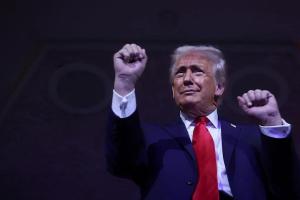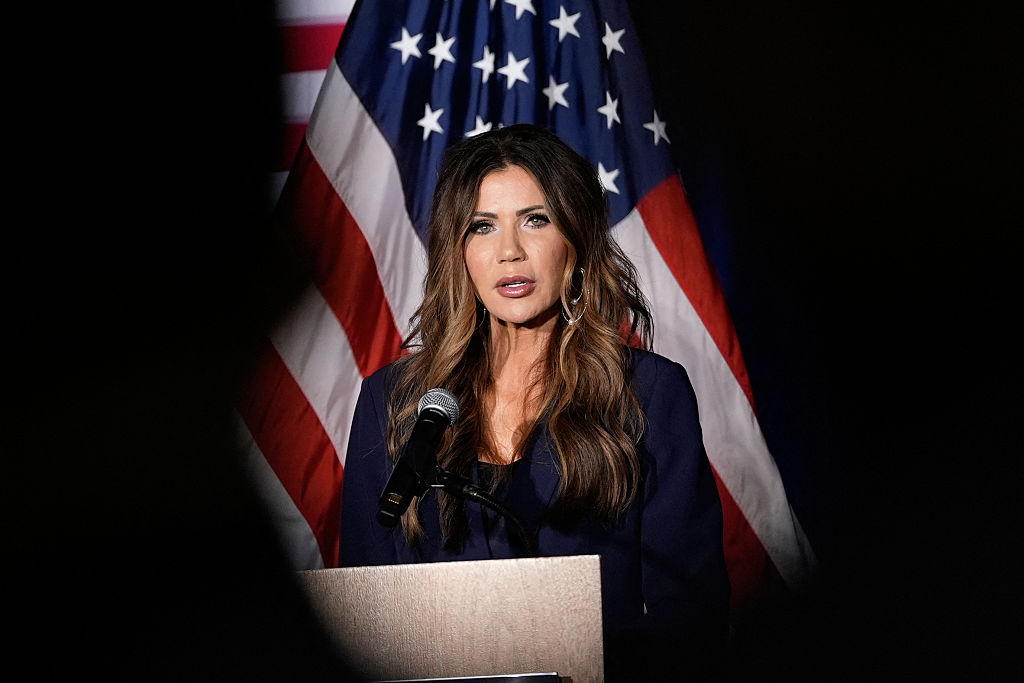He’s survived an assassination, bounced back from bankruptcy and – so far, at least – avoided all attempts to jail him. But Donald Trump’s most audacious feat is yet before him: to persuade Americans to pay more for their goods as their beloved businesses struggle – and then be grateful to him at the polls.
While tariffs threaten to raise prices across the board for consumers, small businesses with lower margins than their larger competitors are struggling. “Whether or not you support tariffs, or whether or not you think certain offices should be cut, I think overall, any kind of economic turbulence is uniquely burdensome for small businesses,” says Molly Day, the National Small Business Association’s vice president of public affairs.
This poses a uniquely burdensome problem for Trump: considering that many small-business owners identify as Republicans, how does he intend to assuage them? Nearly a quarter of small-business owners are registered Democrats, and 38 percent are Republicans. Taken together they are a major force behind the US swing vote.
Trump certainly believes he can win them over in the next two crucial years. “We’re going to win the midterm elections and we’re going to have a tremendous, thundering landslide. I really believe that,” he said at the National Republican Congressional Committee fundraising dinner last week.
But the anecdotal signs, so far, are mixed. The market turmoil of the past few weeks struck fear for all kinds of workers and savers. A large part of the reason Trump paused the higher tariff rate on most countries: because people were getting “yippy.” One small-business owner was left agog when he received his US Customs and Border entry docket for goods from China worth $3,380. The import duty due on the aluminum he’d purchased, sitting in a Cincinnati airport-side warehouse, was $2,483.21. “Can this be right?” he asked, posting the DHL notice on Reddit.
Indeed it can, was the response: 25 percent tariff on anything from China from Trump’s first term, 25 percent aluminum specific tariff from March 12, 20 percent on all Chinese goods exported from early March and 2.5 percent on aluminum parts.
And that was before Trump announced a mind-boggling 145 percent tariff on all Chinese goods.
“Welcome to war,” one fellow small-business owner consoled the bill poster, while another who operates several small manufacturing businesses said, “We are on the verge of experiencing supply-chain shortages that could shut down our factories. This trade war is poised to destroy American manufacturing.”
Steven Borrelli, founder of California clothing brand CUTS, voted for Trump but said his tariffs would be “the death” of companies like his, unless they were delayed for at least nine months. “We’ve built this business to millions of dollars in revenue over the last eight years, had a tremendous amount of success, provided jobs to hundreds of people, and I believe I am an example of the prosperity possible in America. I understand and support the goal of putting America first – we are fully aligned with that mission. We want to protect American jobs and help bring manufacturing back. CUTS is ready to help lead that charge – but it cannot happen overnight. Every day this continues, more businesses will fail.”
Warnings are also being sounded from the other side of the trade war coin: the worrying effect in America of China’s retaliation. Boeing shares slid 3 percent on Tuesday after a report that China had ordered its airlines to halt all jet orders and told them not to purchase aircraft-related equipment from American firms. Boeing is contracted to supply 179 aircraft to Chinese airlines, tens of thousands of jobs in the US hang in the balance. If the giant aircraft maker sees its orders canceled, a small shock wave will travel through the US economy.
Coca-Cola also has a major footprint in China, Ford and other automotive firms export vehicles there, and, of course, American farmers send their produce to China.
“US exporters will be priced out of key markets overnight,” warned David Warrick, executive vice president at Overhaul, a supply-chain risk management company. “An 84 percent retaliatory tariff from China is not just symbolic – it’s commercially punishing.”
Trump administration officials are considering an aid package for American farmers to protect this key voting block from some of the damage of the tit-for-tat tariff war, but it is highly unlikely to protect them from the full impact of the trade war.
Already the US economy has been roiled by job losses in the steel-making and automotive industries as a result of Trump’s tariff regime for the world – and 37 percent of CEOs said they expect to cut jobs this year.
There are, however, some in the small-business community who do feel optimistic, or at least patriotic, about tariffs. “Why not get your parts made domestically?” some in the Reddit group posted. “How about buy America?” And Apple is leading the charge of inward investment by committing $500 billion to boost US manufacturing.
Trump is betting that voters, come the midterms, will agree with him. An appeal to their patriotic hearts rather than their wallets. He hopes to persuade the nation – not just the MAGA nation – that adding manufacturing jobs in industrial heartlands is worth the pain of price rises and mom-and-pop businesses shuttering. What he might discover, however, is that surviving the assassin’s bullet was easier than clinching this particular deal with the electorate.


























Leave a Reply